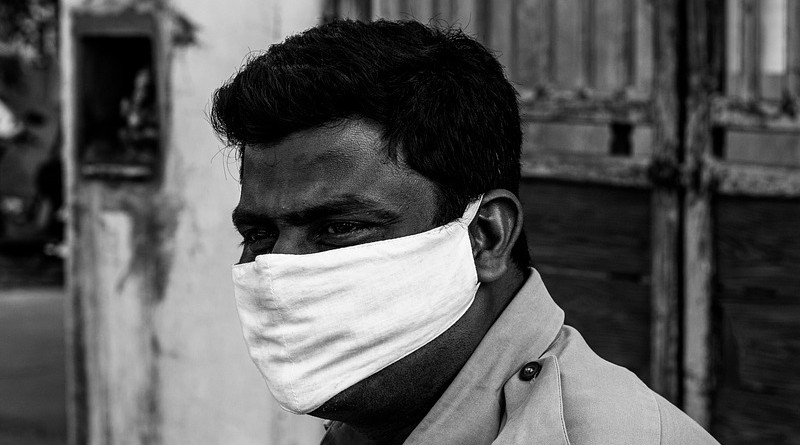The Resurgence Of COVID-19 In India – OpEd
By Dr. Sahibzada Muhammad Usman
The COVID-19 pandemic, a global health crisis of unprecedented scale, has continued to challenge nations around the world, including India. Despite significant efforts to contain the virus, India has recently witnessed a concerning resurgence in cases. It’s vital to delves into the current situation, examining the factors leading to the recent spike in COVID-19 cases, the impact on various sectors, and the response strategies being implemented.
In recent months, India has seen a notable increase in COVID-19 cases. This resurgence is attributed partly to the emergence of new variants, such as the JN-1 variant, which have raised concerns over their transmissibility and potential impact on public health measures. As of the latest reports, the number of active cases has increased, indicating a reversal in the previously declining trend of infections. The impact of COVID-19 in India has been heterogeneous, with some states experiencing a more severe surge than others. This disparity in case numbers has led to varied responses at the state level. Some states have managed to control the spread effectively due to robust public health measures and efficient management of healthcare resources. Others, however, are struggling with increasing caseloads, putting additional pressure on already strained health systems.
The economic repercussions of the pandemic in India have been profound. Industries across the board have been impacted, leading to economic slowdowns and job losses. The interplay between the health crisis and the economy is evident, as the pandemic continues to hinder various sectors from operating at full capacity. The social implications are equally significant. The pandemic has exacerbated issues such as food insecurity, domestic violence, and mental health problems. It has also highlighted the disparities in access to healthcare and other essential services, affecting the most vulnerable populations the most.
India’s healthcare system has been at the forefront of the battle against COVID-19. The country’s mortality rate has been a point of focus, with studies suggesting that the large young population might have contributed to a comparatively lower mortality rate. However, this should not lead to complacency, as the virus continues to pose a significant threat, particularly to the elderly and those with underlying health conditions. The epidemiological impact of COVID-19 in India has varied over time. The country has experienced waves of infection, with some periods marked by rapid increases in cases and death rates. This trend highlights the need for continued vigilance and adaptation of public health strategies to effectively manage the spread of the virus. Strategies such as widespread testing, contact tracing, and vaccination campaigns are critical in this regard.
One of the key strategies in combating the spread of COVID-19 in India has been the nationwide vaccination campaign. The government has made significant efforts to ramp up vaccine production and distribution. Despite these efforts, there have been challenges such as vaccine hesitancy, logistical hurdles in rural and remote areas, and the need for booster doses in the face of emerging variants. Addressing these challenges is crucial for achieving widespread immunity and controlling the spread of the virus.
The pandemic has had a significant impact on education in India. Schools and universities have had to shift to online learning, which has brought to light the digital divide in the country. This shift has affected the quality of education and has had a psychological impact on students. The long-term effects of this disruption in education are yet to be fully understood but are expected to be significant, especially for the younger population. The mental health implications of the pandemic have been profound. The fear of infection, the loss of loved ones, economic hardships, and prolonged isolation have contributed to increased levels of stress, anxiety, and depression among the population. This highlights the need for robust mental health support systems and awareness programs to address the psychological impact of the pandemic.
The pandemic has also spurred innovation and the use of technology in healthcare. Telemedicine, digital health platforms, and AI-driven diagnostics have seen a surge in usage. These technologies have not only helped in managing the pandemic but also hold the potential to transform healthcare delivery in the long term. India’s fight against COVID-19 has global implications, given its large population and role in vaccine production. International cooperation in terms of vaccine sharing, knowledge exchange, and joint efforts in combating the pandemic is crucial. India’s experience and learnings can contribute significantly to global strategies in pandemic management.
The current resurgence of COVID-19 cases in India serves as a reminder of the unpredictability of the virus. It underscores the importance of preparing for future health emergencies. Strengthening healthcare infrastructure, enhancing surveillance systems, and building public health capacities are essential steps in this direction. The resurgence of COVID-19 in India presents complex challenges but also opportunities for learning and improvement. The response to this crisis will shape the country’s public health landscape for years to come. Collective efforts, resilience, and adaptability will be key in overcoming the current challenges and building a stronger, more prepared nation for future health emergencies.

